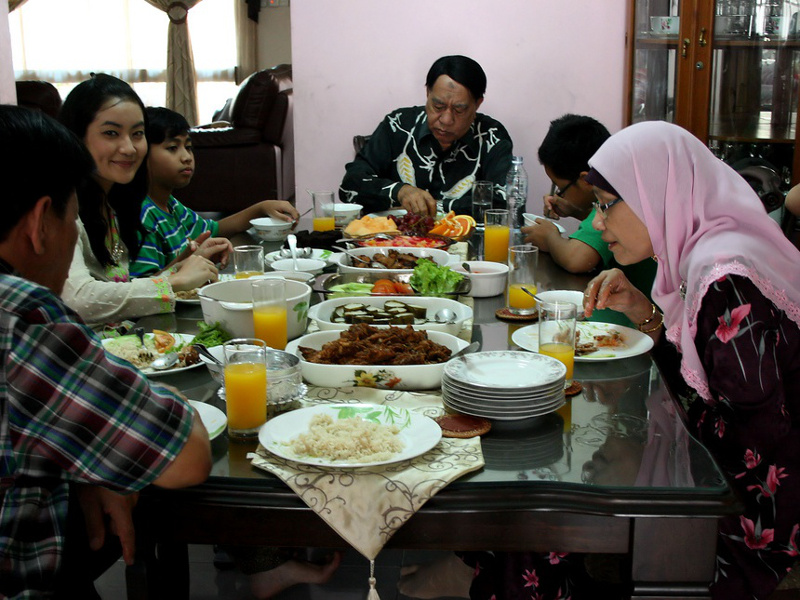
Origins of Nowruz
The history of Nowruz stretches back more than 2,600 years to the time of Zoroaster and the ancient Persian kings. While initially a religious festival, Nowruz is now mostly secular, though it is steeped in symbolism and rich traditions.
March begins with spring cleaning. Families plant small pots of wheat, barley or lentils that quickly germinate into lush green sprouts. Visits to family and friends are an obligation.
Hajji Firuz Singers
The arrival of Nowruz is announced in song by streetsingers called Hajji Firuz, men in red suits and blackface, tapping on a tambourine.
Red Wednesday
At sundown on the last Wednesday before the New Year, bonfires are lit for Chaharshanbe Suri, or Red Wednesday. Revelevers jump over the fires to cleanse themselves of fear and weakness. Children dress up in disguises to represent ancestors, and knock on doors for treats in a ritual similar to Halloween.
The Haft Sīn
The centerpiece of Nowruz observances is the Haft Sīn, a tablesetting of with seven symbolic foods all starting with the letter ‘S’. These often include wheat, barley or lentil sprouts (sabzeh), a wheat pudding (samanu), dried oleaster berries (senjed), garlic (sīr), apples (sīb), sumac berries (somaq) and vinegar (serkeh). The table also includes other items like candles, mirrors, colored eggs and even goldfish bowls with live fish.
Nowruz Foods
All kinds of sweets, pastries, nuts and sherbets are eaten in large amounts during Nowruz. Some of the more popular Nowruz dishes include:
- Sabzi polo ba mahi — rice tinted vivid green with herbs and served with fried fish. Served on New Year’s day;
- Kookoo sabzi — an herbed omelet;
- Reshteh polo — chunks of lamb with rice and noodles;
- Dolmeh barg — grape leaves stuffed with a mixture of rice and ground lamb; and
- Shirin, or shekar polo — a sweet rice pilaf.
The final day of Nowruz is a time for families to drive to the countryside for day-long picnics. People revel in the fresh and warming air. Because the next day, it’s back to work.
Nowruz Recipes
Try these recipes for Nowruz.
Whats4eats is a participant in the Amazon Services LLC Associates Program, an affiliate advertising program designed to provide a means for us to earn fees by linking to Amazon.com and affiliated sites.















